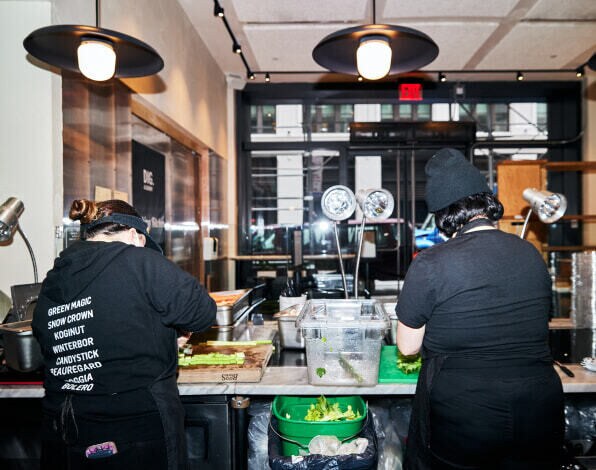
Dig Restaurants Has Given Employees the Option to Work Four Days
Colin Smith — February 17, 2022 — Business
References: diginn & fastcompany
'Dig Inn,' often referred to as just 'Dig,' is an American chain of restaurants that serves freshly prepared, locally sourced foods. Dig has announced a new business practice where its employees are allowed to work a four-day workweek while receiving the same amount of pay. While most businesses that have swapped to four-day workweeks have been salary-paid, what is unique about Dig is that it is an hourly-paid foodservice business.
In order to ensure that employees receive the same paycheck as before, Dig has increased the daily shift length from 8hrs to 10hrs for employees who work four days. The four-day workweek is intended to give the employees a "true break" from their jobs due to the often inconsistent nature of food service schedules for kitchen workers. This practice is not yet an official policy and is still in the testing stage, but if it becomes a company-wide policy, this would be a positive change towards improving work-life balance in the foodservice industry.
Image Credit: Dig Inn
In order to ensure that employees receive the same paycheck as before, Dig has increased the daily shift length from 8hrs to 10hrs for employees who work four days. The four-day workweek is intended to give the employees a "true break" from their jobs due to the often inconsistent nature of food service schedules for kitchen workers. This practice is not yet an official policy and is still in the testing stage, but if it becomes a company-wide policy, this would be a positive change towards improving work-life balance in the foodservice industry.
Image Credit: Dig Inn
Trend Themes
1. Hourly Workweek Trend - More hourly-paid businesses may begin offering four-day workweeks to their employees as more companies seek to improve work-life balance.
2. Flexible Scheduling Trend - Flexible scheduling like Dig's four-day workweek could become more widespread in industries with inconsistent schedules, such as foodservice.
3. Employee Work-life Balance Trend - Employee work-life balance is an increasingly important trend that businesses must prioritize in order to attract and retain top talent.
Industry Implications
1. Foodservice Industry - The foodservice industry may benefit from offering more flexible scheduling options to attract and retain employees in a competitive labor market.
2. Hourly-paid Industry - Hourly-paid industries may see positive impacts on employee retention and satisfaction by offering four-day workweeks and other flexible scheduling options.
3. Service Industry - The service industry could see improvements in employee satisfaction and retention by offering policies like the four-day workweek to improve work-life balance.
1.3
Score
Popularity
Activity
Freshness























